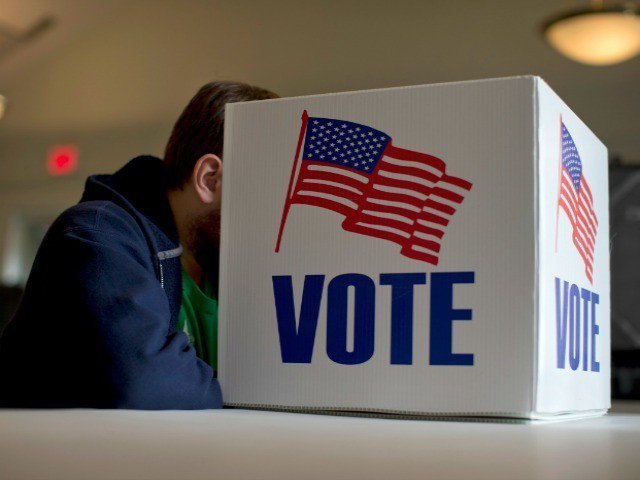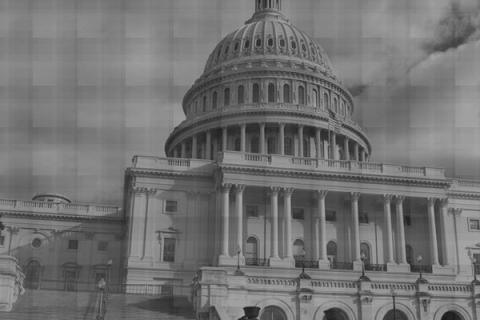What is it with the Democrats? They control both chambers of Congress, as well as the presidency; yet, they seem allergic to confrontation, often shying away from showdown votes. Obama swept into power with huge expectations and a mandate for change but has delivered precious little. Even the Democratic Party faithful are becoming disillusioned, as witnessed by the recent heckling when Obama spoke. The upcoming midterms are shaping up to be a train wreck for Democrats too.
Something similar happened to Republicans in 2008. Scanning blog posts from conservatives just after that election is instructive. Some were wondering if the Republican Party could survive such a defeat. Yet, just two years later, the Republican Party is seemingly resurgent. I say "seemingly" because huge shifts in voter sentiment like this in such a short period show that voters are increasingly unhappy with both parties, and searching for answers. Clearly, this could be an opening for the development of third parties with real clout.
It's happened before. The Populist Party of the 1890's was started by mostly Midwest farmers who were losing their farms to banks and price-gouging crop buyers. At their peak, they controlled several state legislatures as well as several governors and one Senator. For awhile, they had a real impact. But, they split on whether or not to team up with the Democratic Party, and some historians believe the Democratic Party deliberately back-stabbed the Populist Party.
In 2004, then VP candidate on the Green Party ticket Peter Camejo wrote 'The Avocado Declaration' in which he details how the Democratic Party too often functions as a way to co-opt genuine protest from developing, and instead, funnels it into itself where it is rendered harmless. There are no doubt serious pitfalls and traps awaiting any third party that wants to become a national force.
Certainly, some members of the Tea Party now look upon the Republican Party in much the same way that Camejo viewed the Democratic Party. They are suspicious of it and mistrust it, and for good reason. Also, the US appears to be the only democracy that does not have a parliamentary form of government, and that makes things much harder for third parties. In a parliamentary system, a third party that gets 7% of the vote gets 7% of the seats. That doesn't happen here, where 7% of the vote gets you nothing.
However, there are a number of major tactical and strategic mistakes that the Democrats have made that are now hurting them badly. Those working within third parties should heed them.
First, over a period 40 years the Democratic Party has abandoned its traditional base of unions, the working class, the poor, and minorities. This has left them adrift, without any real moorings. The Republican Party knows what it stands for. The Democratic Party does not. That's a major reason they back down so much. They have no overriding guiding principles.
Second, the Democratic Party almost completely ignores (when not being contemptuous of) the white underclass and working class. Joe Bageant, who grew up redneck and became a leftie journalist, discusses this in Rainbow Pie: A Redneck Memoir, the follow-up to his well-received Deer Hunting with Jesus. His books detail how Republicans have not made that mistake. They have courted that white working class with the result being a constituency that once was solidly Democratic is now mostly Republican.
To get ideas on developing third parties, I suggest reading Saul Alinsky's classic Rules for Radicals. Alinsky invented community organizing in the 1930's in the downtrodden Back of the Yards area of Chicago, and continued organizing for decades. The rules in the book can be used by anyone. They aren't left-wing at all. Indeed, anti-ACORN filmmaker James O'Keefe was quoting Alinsky's rules on blogs as an inspirational guide when he released the videos. In short, Alinsky says you organize by listening to what people say, help them start a group, and most importantly, let them run it. The book explains his tactics in detail. (By the way, Alinsky was not even remotely socialist and in fact thought Marxism was irrelevant.) In a 1972 interview with Playboy, he says it's the middle class that must be organized, because that's where the power is.
For third parties to be successful and grow, they need to identify their constituency, stay with them, and build from there. People are angry now in this country, something former President Clinton just acknowledged. Sooner or later, some party or parties will channel and harness that anger, and they will change the nation. Hopefully, it will be third parties leading the way.

